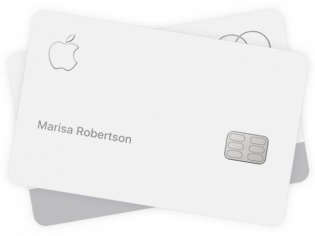-
Team TechTree
07:58 16th Dec, 2019
Apple Cards and 5G Phones Spells the Future | TechTree.com
Apple Cards and 5G Phones Spells the Future
The company is reportedly toying with the idea of absorbing the higher costs of the new handsets when it launches in 2020, so consumers may not have to fork out extra cash

Barely a week ago, we had attempted to set the agenda for Apple during 2020 by collating all the gossip and rumors that came and went through the past twelve months. But looks like Cupertino giant has a few more surprises for us just as the world heads into a more than welcome break for Christmas and the New Year.
For starters, the company went live with its Apple Card program on December 10 under which customers can acquire the iPhones on an interest free installment over 24 months after which they can automatically acquire the latest edition and once again pay for the same over the next two years – in other words you pay for the phone and the plan on a monthly basis.
Now! How cool is that, one wonders? Not very when one considers that this is yet another trick from Apple to keep customers within their ecosystem. Given that the Apple Card is only available to iPhone users across the United States currently, though the only difference now is that there’s a branded credit card in play now compared to the partnership the company had with Citizen One Bank earlier.
What’s intriguing is the timing of the card’s launch, especially since customers across the United States hadn’t been comfortable forking out more than $1000 for a smartphone. In fact, a recent survey result, reported by TechCrunch.com had put the number of people willing to spend more than $1000 for a new phone was just about ten per cent.
The NPD study on mobile phone tracking suggested that most customers in the United States weren’t keen to spend an extra $200 for 5G phones that is likely to hit the markets next year. Though many customers may have postponed upgrading their smartphones in 2019 in anticipation of the latest technology next year, the expected cost increase could still prove a dampener.
Which brings us to the second of the possible surprises from Apple. Analyst Ming-Chi Kuo writes in a research report for TF International Securities that the company could be releasing the 5G phones next year that could entail an increase in production costs between $30 to $100 depending on the model though Apple may not increase prices compared to last year’s line-up.
The iPhone 11 started at $699 while the Pro and Pro Max models cost $999 and $1099 respectively last year. This time round, Apple is hoping to offset the cost of 5G by cutting down on its supply chain expenses that includes dropping the non-recurring engineering payment to suppliers of the redesigned metal chassis and frame for the new models.
Ming-Chi Kuo believes that the non-recurring payments, which includes a one-time cost to research, design, develop and test new products or components, could be saved by moving most of the activity in-house. The analyst believes that Apple would be able to curtail these payments since beyond 2020 the company plans to have new releases on a biannual basis – low-end phones in spring and high-end ones during the fall.
Looks like Tim Cook is once again getting his timing right by pitching the Apple Card just nine months before the iPhone’s 5G versions are set to hit the market. Of course, for now he seems to be focusing only on the US market. As for India, there is no way Apple can get in with its own card, given the restrictions that exists on entry of credit card businesses into the country.
And Cook may not be bursting a blood vessel strategizing on India, considering that the 5G rollout appears continues to be a distant dream, especially given the jolts that the Indian telecom giants have received from government in terms of massive payouts.
TAGS: Apple, iPhone, 5G Phones, iPhone 5G, 5G Handsets, Apple Cards
- DRIFE Begins Operations in Namma Bengaluru
- Sevenaire launches ‘NEPTUNE’ – 24W Portable Speaker with RGB LED Lights
- Inbase launches ‘Urban Q1 Pro’ TWS Earbuds with Smart Touch control in India
- Airtel announces Rs 6000 cashback on purchase of smartphones from leading brands
- 78% of Indians are saving to spend during the festive season and 72% will splurge on gadgets & electronics
- 5 Tips For Buying A TV This Festive Season
- Facebook launches its largest creator education program in India
- 5 educational tech toys for young and aspiring engineers
- Mid-range smartphones emerge as customer favourites this festive season, reveals Amazon survey
- COLORFUL Launches Onebot M24A1 AIO PC for Professionals







TECHTREE